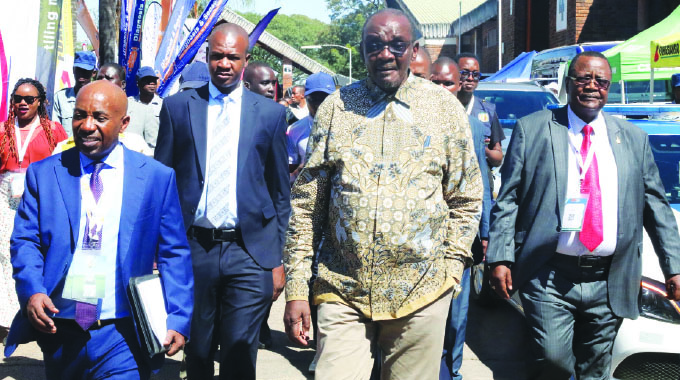Global risks, vulnerabilities hamper Midlands SDG progress

Midlands Bureau Chief
EFFORTS by the Midlands Province to meet the United Nations 2030 Agenda for Sustainable Development Goals (SDGs) and Vision 2030 are being hampered by increasing global risks and vulnerabilities such as adverse weather patterns, pandemics and geopolitical tensions among others.
The 2030 Agenda for Sustainable Development, adopted by all United Nations members in 2015, created 17 world SDGs with the aim of peace and prosperity for people and the planet while tackling climate change and working to preserve oceans and forests. The SDGs highlight the connections between the environmental, social and economic aspects of sustainable development.
As a member of the African Union, Zimbabwe also adopted the Africa Agenda 2063 together with other African countries and they agreed on an integrated, prosperous and peaceful continent driven by its own citizens and representing a dynamic force in the international arena.
Midlands province yesterday made a follow-up and assessment of the implementation of the SDGs through a stakeholders’ voluntary national review (VNRs) validation meeting in Gweru.
The voluntary national review validation comes after stakeholders gathered in December last year to share input into the third VNRs which Zimbabwe is currently developing with the first two having been done in 2017 and 2021.
Addressing the meeting, Permanent Secretary for Midlands Provincial Affairs and Devolution, Dr Edgar Seenza said the VNRs, which are done by all stakeholders allow the country to take stock of SDGs implementation progress, and opportunities, and identify gaps and challenges as well as recommendations.
“As a province, we are making a follow-up and assessment of the implementation of Sustainable Development Goals through a stakeholders’ voluntary national review validation meeting. This will allow us to see how we have been performing since the inception of the goals in 2015 as well as compare ourselves with our counterparts,” he said.
At the national level, Dr Seenza said the country is implementing the global and regional agenda through Vision 2030 and the National Development Strategy (NDS1) among others.
“Despite efforts to achieve the 2030 Agenda, Agenda 2063 and the Vision 2030, progress has been hampered by global risks and vulnerabilities which have increased on account of tight monetary and financial conditions, geopolitical tensions, adverse weather events and pandemics among others,” he said.
Dr Seenza said other emerging issues include drug and substance abuse and climate change.
“The need for accelerated actions by everyone to be able to attain the 2030 Agenda is thus imperative. We need to work together to make sure that some of the goals are achieved,” he said.
Secretary for Public Service, Labour and Social Welfare Mr Simon Masanga, who was represented by Midlands Provincial labour officer Mr Lackson Maburutse, said the review facilitates the sharing of experiences to accelerate the implementation of SDGs.
“In addition, the Voluntary National Review helps to increase awareness of SDGs and national development plans among the citizens in line with the overarching principle of leaving no one behind,” he said.
Mr Masanga said there is a need for stakeholders to give priority to special groups such as persons with disabilities, youth, women and the elderly.
“However, there is a worrying trend in terms of participation of stakeholders as evidenced by the limited participation of children and persons with disabilities. We need to come up with child-led chapters which will be incorporated into the main Voluntary National Review by the time validations conclude,” he said.












Comments